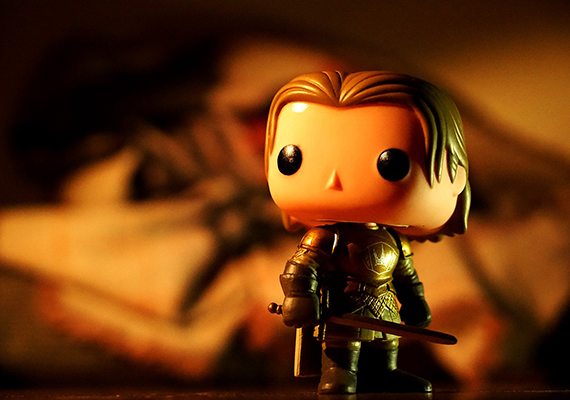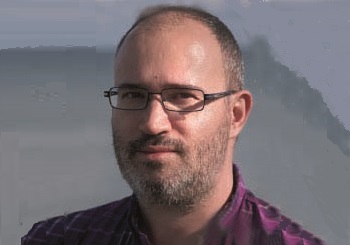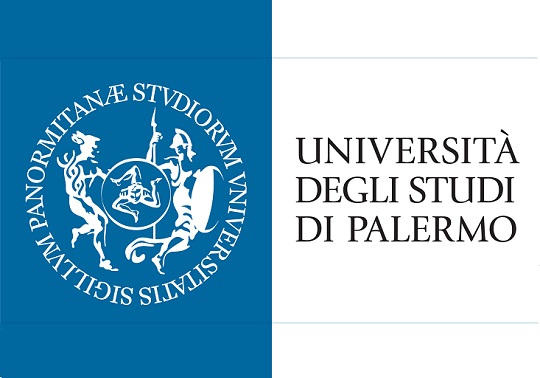
The University-Business Foundation of the Universitat de València (ADEIT) dedicated a few minutes during the last EnTRetextos conference to translator Cristina Macía, who translates the saga ‘A Song of Ice and Fire’ into Spanish. Here we report on that interview.
6 may 2016
Windhaven, the second novel of an almost unknown George R. R. Martin, fell into her lap when she was barely 20 years old. It was 1988 and the first book of the ‘Song of Ice and Fire’ saga – better known for the title of the first book of the series and its TV adaptation ‘Game of Thrones’ – would still take eight years to arrive to American bookshelves, six more years to be translated into Spanish and another decade to become one of the most acclaimed television series in the world. But it was the first step for Cristina Macía to become one of the most read translators in Spain, thanks to Gigamesh publishing house and Martin’s kind ‘collaboration’.
The saga has sold millions of copies around the world and Spain is not an exception, thanks to Macía’s good work in transporting the reader to the fantastic locations of the series without losing the charm of the original version. Here is the transcription of her interview with ADEIT during the EnTretextos conference.
When did your career as a translator begin?
I started translating comics. I really enjoyed translating them for many years. Then I started to translate fantasy books, detective novels, science fiction and terror books.
How did Game of Thrones arrive in your hands?
Alejo Cuervo – editor of Gigamesh, the publishing house that publishes ‘Song of Ice and Fire’ – bought the rights. And he bought them because he liked the series, he liked ‘Game of Thrones’, the first published book until then. But I want to make it clear that he is the one with true talent here.
What is the biggest challenge when translating?
The difficulties in translating a fantasy novel are intrinsic to all translations, period. Translating consultancy manuals is as difficult as translating a fantasy novel. I need to research on how the parts of an armour are shaped; the translator of a lift or a vacuum cleaner manual needs to carry out some research as well. No more and no less than me.
What needs to be taken into account when translating?
The most important part in literary translation is that the reader feels like he or she is inside the book. That is most important, it is vital. It is vital to do what the author wants, and what does the author want? The author wants you to stay and keep reading, that is the first thing the author wants, it is not so important what he says or how he or she says it. Above all, precision or details are not so important. It is more important that too many details may drive the reader out.
What do you think about the translator’s invisibility?
Well, it is a long ride but we translators are really used to be invisible. And I believe that is how we are supposed to be, invisible.
What advice would you give to Translation students?
Constant training is necessary. And that training has to be super heterodox. It not enough to reed translation manuals or books or coming here to translation conferences. What are you interested in? I prefer you to watch many The Simpsons episode, rather than reading the thousandth book by Sousa. The Simpsons will give you lots of clues. What do you like, what do you want to do in life? What aspects would you like to specialise in? Do you like science fiction and fantasy? Go to science fiction and fantasy conventions. You will meet authors: that author may suggest both of you participate in a joint project.
Why are you so successful?
The only thing I would like to make clear is that it is not because I am the best translator in the world, or because I did things I had never done before. It is just luck and coincidence, and because I am Game of Thrones’ translator. I do not make Game of Thrones great – Game of Thrones makes me great.

.jpg)








